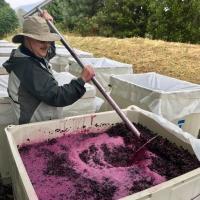-
Welcome to the eG Forums, a service of the eGullet Society for Culinary Arts & Letters. The Society is a 501(c)3 not-for-profit organization dedicated to the advancement of the culinary arts. These advertising-free forums are provided free of charge through donations from Society members. Anyone may read the forums, but to post you must create a free account.
NY State Crushes Osborne's Dream
-
Similar Content
-
- 9 replies
- 1,940 views
-
United States Issues New Nutrition Guidelines - Eat That Steak and Eggs (After You Cook Them in Butter)!!
By weinoo,
- 20 replies
- 1,252 views
-
- 46 replies
- 22,999 views
-
-
Recently Browsing 0 members
- No registered users viewing this page.




Recommended Posts